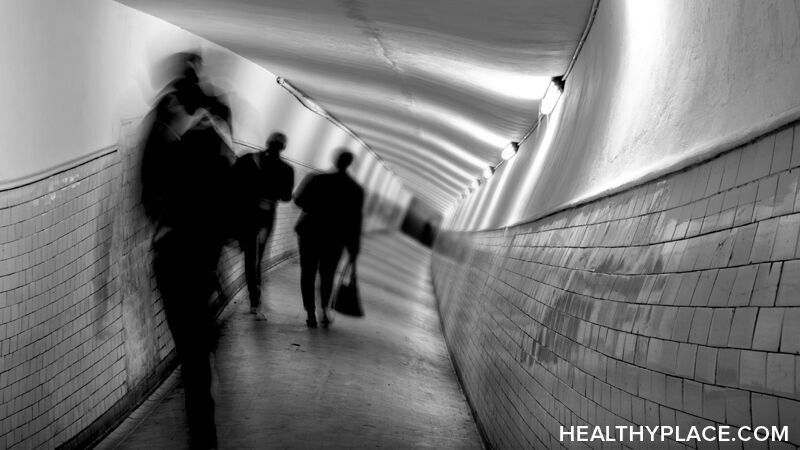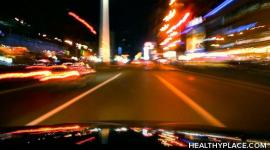Technical Definition of Psychosis

Learn about the meaning and definition of psychosis, how it relates to bipolar disorder and the difference between bipolar psychosis and schizophrenia psychosis.
Having read the previous page, you may think "but what is bipolar psychosis?" What are bipolar hallucinations and delusions? How does this relate to bipolar disorder? How is it treated? This article will answer these questions, but we have to go one step at a time as psychosis can be quite an intricate puzzle. The word psychosis is a Greek word meaning an abnormal state of the mind. In most textbooks, psychosis is usually defined and described as a loss of contact or a break with reality. Here is how The American Psychiatric Press Textbook of Psychiatry (third edition, 1999) describes psychosis:
There are two classic psychotic symptoms that reflect a patient's confusion about the loss of boundaries between the person and the external world: Hallucinations and delusions. Both symptoms reflect a loss of ego boundaries and the patient is unable to distinguish between his or her own thoughts and perceptions and those that he obtains by observing the external world.
Now, what does that really mean? It means that people with psychosis experience hallucinations where they see, smell, taste, feel or hear something that is not there. They also have false and often bizarre beliefs about themselves and the world around them called delusions. Once you understand the characteristics of hallucinations and delusions, you can understand psychosis. You also might be surprised to find that you or someone you care about has experienced hallucinations and or delusions and not known it!
How is Bipolar Psychosis Different from Schizophrenia Psychosis?
To get started, it helps to understand how and why the psychosis experienced with bipolar disorder (a mood disorder) is different from the more classic symptoms seen in psychotic disorders such as schizophrenia. The psychotic symptoms in each illness mimic each other, especially when a person is in a full-blown manic psychotic episode. But there is one main difference: Schizophrenic psychosis is far more 'grossly disorganized' than often seen with bipolar disorder. In other words, the person with schizophrenia often has confused thought processes regarding everyday activities that are a direct result of psychosis. Though people with bipolar psychosis can reach this level where their psychosis mimics schizophrenia psychosis, it's also possible for their psychotic symptoms to be more in touch with the world around them without such a strong effect on behavior.
Dr. Preston explains it this way:
"I had a patient with depression and I didn't know she had psychotic features because she didn't report them. After she recovered, she told me that during the depression she was convinced that all of her internal organs had died and rotted. She was afraid that if she told me I would put her in the hospital. This is an example of bipolar psychosis where the person is lucid and can go on with life despite the psychosis. This is not usually the case with schizophrenia." Another distinction is that unlike chronic schizophrenia psychosis, bipolar psychosis is episodic in that it comes attached to a mood swing that eventually ends.
APA Reference
Fast, J.
(2021, December 28). Technical Definition of Psychosis, HealthyPlace. Retrieved
on 2025, December 3 from https://www.healthyplace.com/bipolar-disorder/psychosis/a-technical-definition-of-psychosis



